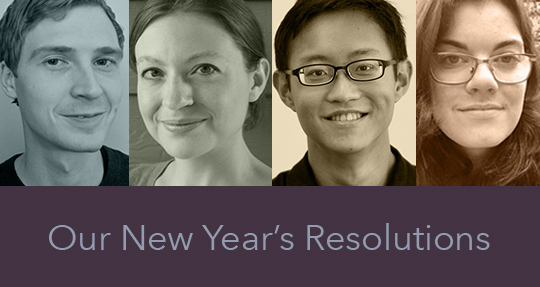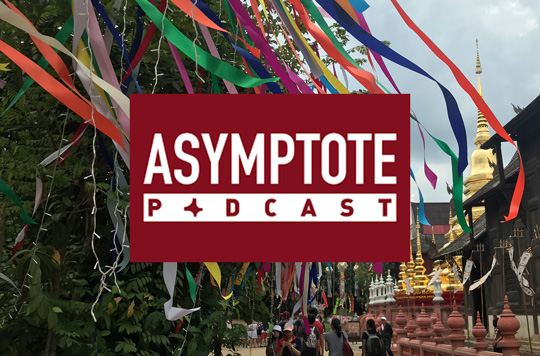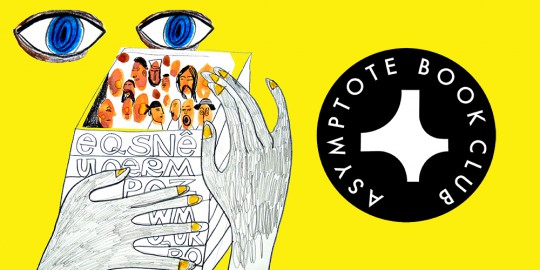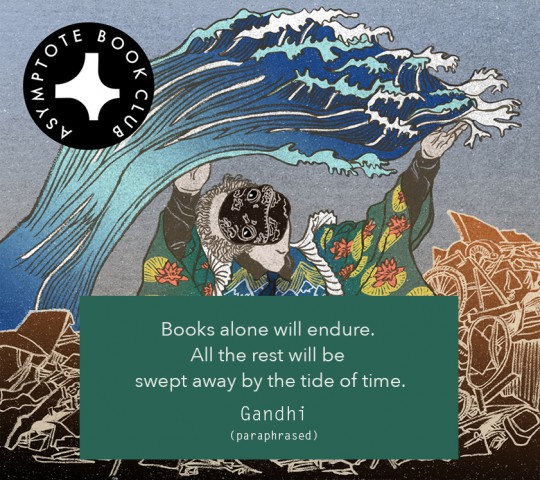We interrupt our regular blog programming with an announcement (and a bit of humble-bragging): The Asymptote Book Club has now entered its third year! To celebrate, we’re taking 10% off three-month subscriptions this holiday season—just sign up by December 12 at this link here (coupon pricing already applied).
We didn’t know what to expect when we first set up this Book Club, but adventurous readers (which fans of Asymptote tend to be) in the UK, the EU, and the US, have shown that there is strong demand for a curated service dedicated to world literature.
Since the Book Club launched in December 2017, we’ve introduced compelling titles from all around the world. At our blog, we have interviewed both the authors and the translators of our book club picks, including Pulitzer Prize-winning writer and translator Jhumpa Lahiri among many others. One of our titles, Love by Hanne Orstavik (February 2018’s selection from Archipelago Books, translated from the Norwegian by Martin Aitken) even won the 2019 PEN Translation Prize! We’re happy to live up to our promise of delivering contemporary classics and future critical hits to your door. On the occasion of the Book Club’s second anniversary, we’re revisiting a conversation with founder Lee Yew Leong (also our the magazine’s editor-in-chief) at the launch of the service two years ago.
Why a Book Club?
Well, in a nutshell: the idea was to take the important work we have done with our award-winning, free online journal and our Translation Tuesday showcases at the Guardian—that is to say, showcasing the best new writing from around the world, and giving it a physical presence outside of the virtual arena. We also wanted to celebrate (as well as support) the independent publishers who work hard behind the scenes to make world literature possible. READ MORE…







